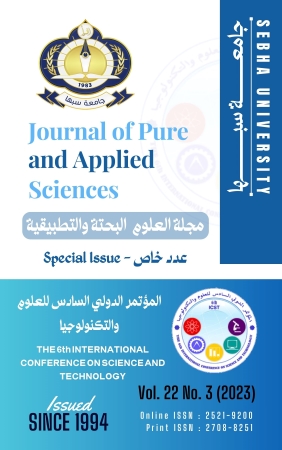Treatment of Produced Water Using Microalgae
Abstract
Produced water is one of the key attractions in the oil fields, where formation water rises to the surface along with the crude oil and is then separated to prevent many problems that may arise during transportation. Nevertheless, the created water is occasionally injected into a man-made lake inside the fields. The sands, creatures, vegetation, and formation water are all contaminated by the lake's water. Because produced water contains minerals and inorganic salts, effective treatment of this water is crucial. This study was conducted to examine how treating produced water with organic elements like freshwater algae affected the amount of salts in the formation water. Two types of freshwater algae namely: Oedogonium algae , Zygnema algae, were used.
Electrical Conductivity (E.C), pH, total dissolved solids (TDS), and salinity were measured before and after the treatment at different times intervals ( on day one, the fourth day, and the seventh day). The results showed that Oedogonium algae have positive effects on the first day, whereas TDS decreased from 5364 mg/l to 1381 mg/l, pH changed from 7.13 to 8.7, E.C decreased from 10.95 ms/cm to 2.818 ms/cm, and salinity decreased from 6.2 ppt to 1.6 ppt. The treated produced water was used for irrigation of plants and as a drinking water for animals without any detrimental effects.
Full text article
Authors
Copyright (c) 2023 Journal of Pure & Applied Sciences

This work is licensed under a Creative Commons Attribution 4.0 International License.
In a brief statement, the rights relate to the publication and distribution of research published in the journal of the University of Sebha where authors who have published their articles in the journal of the university of Sebha should how they can use or distribute their articles. They reserve all their rights to the published works, such as (but not limited to) the following rights:
- Copyright and other property rights related to the article, such as patent rights.
- Research published in the journal of the University of Sebha and used in its future works, including lectures and books, the right to reproduce articles for their own purposes, and the right to self-archive their articles.
- The right to enter a separate article, or for a non-exclusive distribution of their article with an acknowledgment of its initial publication in the journal of Sebha University.
Privacy Statement The names and e-mail addresses entered on the Sabha University Journal site will be used for the aforementioned purposes only and for which they were used.

